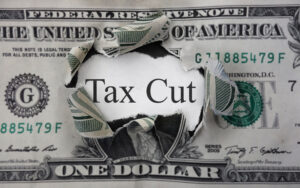The IRS Is Messing with Taxation of Unemployment Benefits

Show Notes:
1) The IRS is messing with taxation of unemployment benefits
2) High-Income folks and tax evasion issues
3) Extensions and the rules
4) File for free with income up to $72,000.
Greenstein Rogoff Olsen & Co
rcohen@groco.com
510-797-8661
www.groco.com
1) The IRS is messing with taxation of unemployment benefits
The #IRS will automatically process #tax refunds for individuals who paid #taxes on their unemployment benefits before Congress passed a law making those payments tax-free, IRS Commissioner Chuck Rettig told lawmakers. https://trib.al/8ycM6oa
– A $10,200 per individual unemployment insurance exclusion for the 2020 taxable year, only for households with modified AGI of $150,000 or less. Taxpayers who have already filed returns reporting 100% of their unemployment will need to supersede or amend their returns to get a refund;
https://www.accountingtoday.com/articles/irs-to-automatically-process-refunds-on-jobless-benefit-payments?utm_campaign=accountingtoday-tw&utm_content=socialflow&utm_medium=social&utm_source=twitter
https://www.irs.gov/faqs/irs-procedures/forms-publications/new-exclusion-of-up-to-10200-of-unemployment-compensation
2) High-Income folks and tax evasion issues
High Income Tax Avoidance Far Larger Than Thought
https://www.marketscreener.com/news/latest/High-Income-Tax-Avoidance-Far-Larger-Than-Thought-New-Paper-Estimates–32748559/
3) Extensions and Rules:
https://www.irs.gov/businesses/small-businesses-self-employed/understanding-penalties-and-interest
4) File for free with income up to $72,000:
IRS.gov is always available and has tools to help people file and pay taxes, find information about their account, and get answers to tax questions.
Here are a few things that people can do with a visit to IRS.gov.
File a tax return
Taxpayers who earned $72,000 or less in 2020 can file free using brand-name tax software with IRS Free File. People who earned more and want to do their own taxes can use Free File Fillable Forms. These are the electronic versions of IRS paper forms. Either way, everyone has a free electronic filing option.
The IRS has extended the federal income tax filing due date for individuals for the 2020 tax year from April 15, 2021, to May 17, 2021. Individual taxpayers have until May 17 to file and pay 2020 federal income taxes. If individual taxpayers need more time to file, they can use IRS Free File through May 17 to electronically request an extension to file until Oct. 15. Taxpayers should remember that an extension of time to file is not an extension of time to pay. Penalties and interest may apply to taxes not paid by May 17.
Individual taxpayers can get an extension by paying all or part of their estimated income tax due using Direct Pay, the Electronic Federal Tax Payment System or a credit or debit card, and indicating that the payment is for an extension. This way they won’t have to file a separate extension form and will receive a confirmation number for their records.
Where Can You Find the World’s Best Tax Havens?
Where Can You Find the World’s Best Tax Havens? What’s your next vacation location: the Caribbean Tahiti, Bermuda, Belize, the Virgin Islands, or perhaps the Cayman Islands? These are all great choices and many of the world’s wealthiest individuals not only get to travel to these exotic locations on a regular basis, but many of…
Enjoy Them While They Last: End of Bush Tax Cuts Could Throw U.S. into Deeper Recession
Enjoy Them While They Last: End of Bush Tax Cuts Could Throw U.S. into Deeper Recession A few Senate Democrats recently made noise over ending the Bush Tax Cuts in January 2011 given the country’s economic prospects. Although many people have predicted that the end of the Bush Tax Cuts is a foregone conclusion, a…
Trusts for Children
Trusts for Children There is a new message that the very wealthy are delivering to their children, a message heard more and more often. And it is a message that could just as well be delivered to the children of parents with somewhat more humble accumulations of assets. To state it bluntly, the message is:…
Estate Planning for Highly Appreciated Stocks
Estate Planning for Highly Appreciated Stocks Despite the market reversals of 2000-2001, large unrealized gains still reside in many longheld stock portfolios built up during the record 1982-1999 expansion. How do such assets fit into an estate plan? Advantages over estate transfers Many estate plans include a program of regular gifts. From a tax perspective,…




